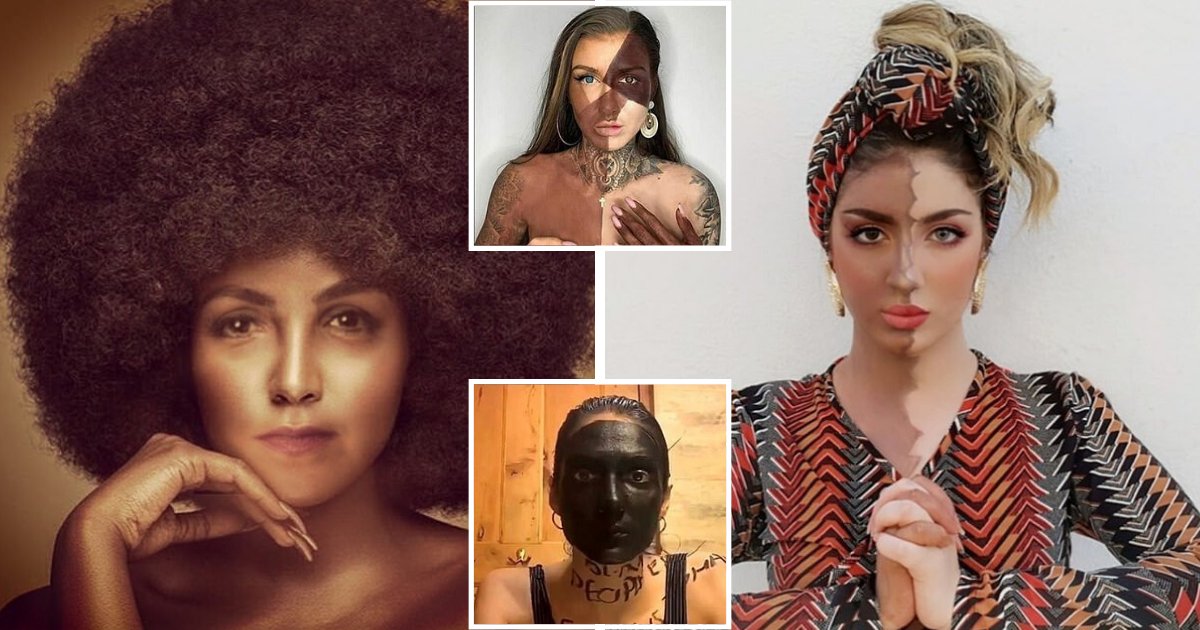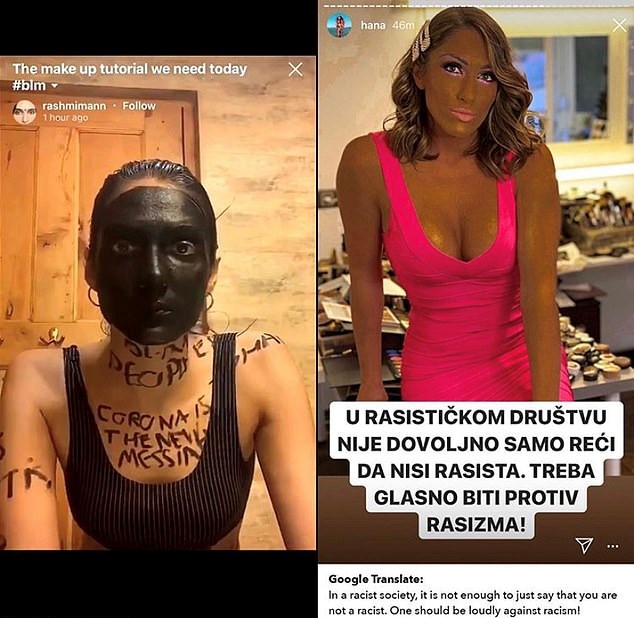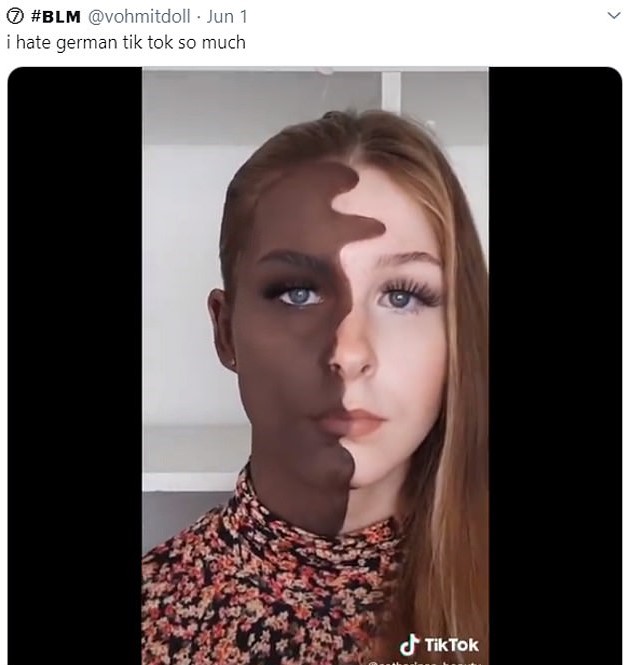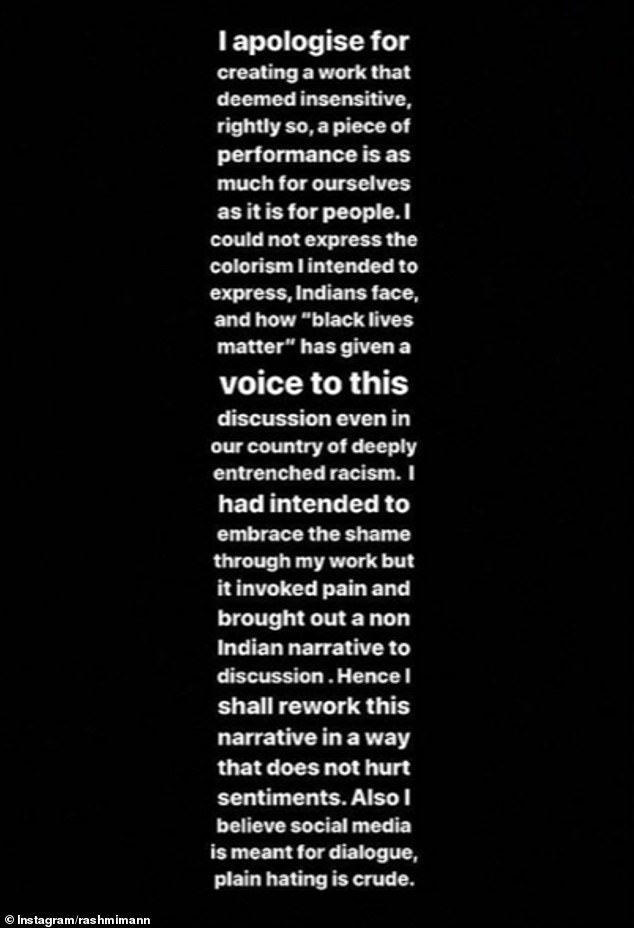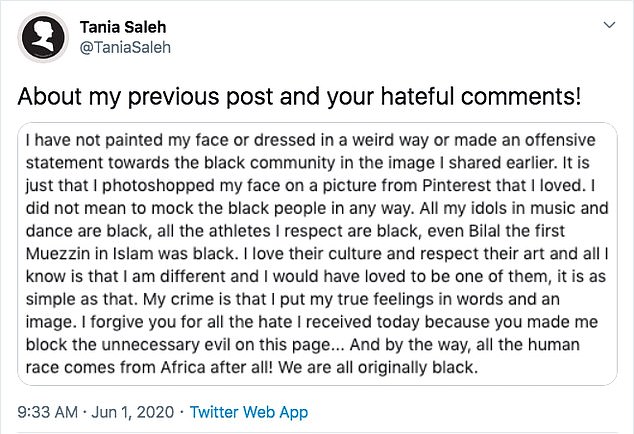Many influencers are facing criticism for posting photos of themselves in blackface in an attempt to show support to the Black Lives Matter movement.
People from all over the world have called for an end to racism and protested since the death of George Floyd in Minneapolis but some are not doing it efficiently.
Several influencers have shared videos and photos of themselves with black and brown makeup to show solidarity with the Black Lives Matter movement.
Internet user Saint Hoax captured screenshots of famous Instagrammers and wrote: “Many “influencers” have been sharing photos of themselves wearing blackface as an act of solidarity with the Black Lives Matter movement.
“Even after receiving backlash, some are still refusing to take down their posts. How can you “spread awareness” about a subject you know so little about? If you genuinely care about a cause, the least you can do is educate yourself about it.
“It’s infuriating that we still need to educate people about the racist and painful history of blackface. We shouldn’t be having this conversation in 2020.”
Algerian artist Souhila Ben Lachhab applied brown makeup on half of her face and neck. “Just because we’re black on the outside, doesn’t mean we’re black on the inside. Racist people are the true black heart ones. They are black on the inside, and they know it,” she wrote.
Tania Saleh, a Lebanese singer, photoshopped a photo of herself, showing her with an Afro and deep brown skin. She wrote: “I wish I was black, today more than ever. Sending my love and full support to the people who demand equality and justice for all races in the world.”
Influencers from Bosnia, Germany, Poland, Herzegovina, Turkey and Philippines also shared similar photos with black or brown face.
Saint Hoax said many of these people may not understand the history of blackface, particularly in the US. It was used in minstrel shows in the 1800s in which white performers would apply black makeup and portray negative stereotypes of black people.
These shows helped solidity some stereotypes and dehumanize black men for white audiences.
“By distorting the features and culture of African Americans — including their looks, language, dance, deportment and character — white Americans were able to codify whiteness across class and geopolitical lines as its antithesis,” the Smithsonian’s National Museum of African American History and Culture told CNN.
Tania Saleh apologized on Twitter and said: “My crime is that I put my true feelings in words and an image. I forgive you for all the hate I received today because you made me block the unnecessary evil on this page… And by the way, all the human race comes from Africa after all! We are all originally black.”
Rashmi Zurail Mann also expressed remorse and deleted her Instagram post. “I apologise for creating a work that was deemed insensitive. I could not express the colourism I intended to express, [similar to what] Indians face, and how Black Lives Matter has given a voice to this discussion even in our country of deeply entrenched racism.”
What are your thoughts on this? Let us know in the comments section and SHARE this story with your friends and family!
Replaced!


